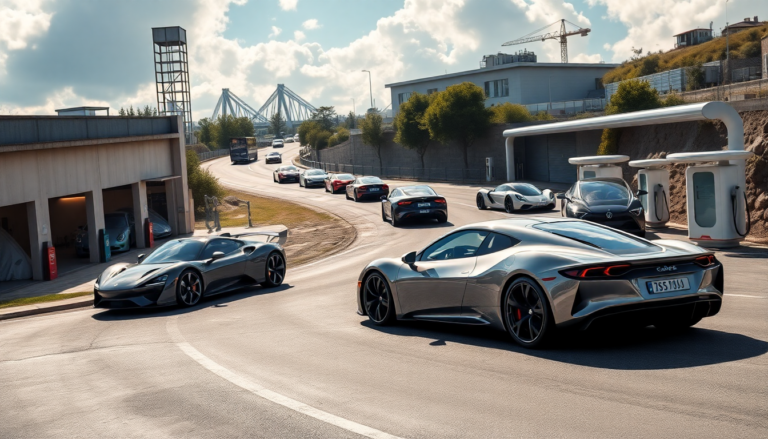Argomenti trattati
In a world where technology permeates every corner of our lives, the automotive industry is undergoing a significant transformation. The once-unwavering passion for high-performance engines is gradually being overshadowed by a rising demand for connectivity, comfort, and environmental responsibility. This shift prompts us to ask: what does it really mean to be an automotive enthusiast today? Are we really moving away from the exhilarating roar of a V8 engine in favor of a future dominated by hybrid and electric vehicles?
Shifting consumer priorities
Traditionally, car buyers were all about engine specs. Conversations revolved around questions like, “What engine does it have?” However, that narrative has changed dramatically. Nowadays, many consumers are more interested in features like connectivity, asking things like, “Does it have Android Auto?” or “What’s its electric consumption?” This trend, highlighted by Ford at a recent conference, underscores a major shift in how consumers engage with their vehicles. As John Lawler, Ford’s Vice President, pointed out, the connection between drivers and traditional combustion engines is fading.
Lawler remarked, “Today’s customers no longer focus on displacement, torque, or horsepower as they did thirty years ago.” This shift is evident in purchasing behavior, where the priority has become a vehicle that is well-connected, comfortable, and packed with advanced technology. The charm of classic performance appears to be waning, as seen in the recent transition of the Mercedes-AMG C63 from a powerful V8 to a hybrid four-cylinder engine. While the new model boasts impressive specs, it hasn’t quite sparked the excitement among traditional enthusiasts, resulting in a rather lukewarm reception despite its performance potential.
The paradox of performance vehicles
Take the iconic Ford Mustang GT, for example. With its legendary 5.0-liter engine, it stands as a hallmark of American muscle. Yet, it faces challenges in maintaining its relevance in the European market, where stringent environmental regulations and taxes dampen the allure of such powerful engines. As the fascination with roaring engines diminishes, crossovers and SUVs are witnessing a surge in popularity, appealing to consumers who prioritize comfort, space, and modern tech over the thrill of engine noise.
That said, there remains a niche audience that is deeply passionate about the art of driving—those who seek excitement, mechanical finesse, and character in their vehicles. This segment is being courted by emerging hybrid sports cars, like the upcoming Honda Prelude, and ongoing innovations exploring internal combustion engines powered by synthetic fuels and hydrogen, with Toyota actively investing in such technologies. While the love for traditional engines may not be extinguished, it is certainly evolving.
The future of automotive passion
As we ponder the future of automotive enthusiasm, we must ask ourselves: can this passion find its voice amidst the rise of active exhausts, electric boosts, and clean technology? Will the thrill of driving morph into a new experience that harmonizes technological innovation with genuine driving joy? The automotive industry stands at a pivotal crossroads, and the path it chooses will not only shape the vehicles we drive but also redefine what it truly means to be an automotive enthusiast in the years ahead.

